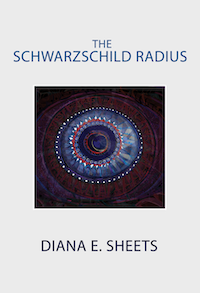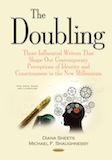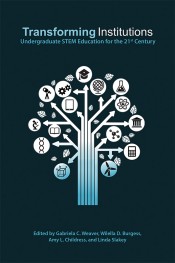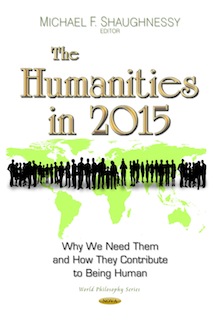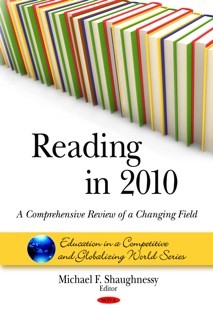Virtue
Copyright © 2007 by Diana E. Sheets
Within the Literary Gulag these days, that “black flower of civilized society” (
But what is that to which we refer as virtue? For the Greeks, the word arete translates as both excellence and virtue with the implied search for truth. Plato, concerned with living the good life, noted that only under special circumstances are individuals able to tame their unruly appetites to devote their lives to the search for truth and of these only the most exalted will harness their desires to obtain the good for which humans yearn. Aristotle saw happiness as that “activity of the soul expressing virtue.” For Zeno, virtue was the sole constituent of happiness. All others—birth, beauty, honors, and riches—but secondary attributes. (Darrin M. McMahon, Happiness, Grove Press, 2006, pp. 39, 45, 54-57)
And where might this Greek notion of virtue be found in literature today? Is it evident in Jeffrey Eugenides’ Middlesex (Farrar, Straus and Giroux, 2002), winner of the 2003 Pulitzer Prize for Fiction and celebrated by the literati? Middlesex presents the story of the hermaphrodite of Greek heritage, Callie, a girl who at fourteen becomes Cal, the man. Might virtue to be found in Jason Goodwin’s The Snake Stone (Farrar, Straus and Giroux, 2007), a novel that has as its gumshoe, Investigator Yashim, a eunuch who solves mysteries in historic
For the founders of
How might the virtuous beliefs of the founders be represented in fiction today? Consider M.T. Anderson’s The Astonishing Life of Octavian Nothing, Traitor to the Nation, Vol. 1: The Pox Party (Candlewick), recipient of the 2006 National Book Award for Young People’s Literature. It is a historical novel beautifully written and deftly plotted. Yet, what is the import of its story? First, the plot. It is a buildungsroman featuring a black youth, Ocatavian, raised in the home of enlightened philosophers on the eve of the American Revolution. His mother is an African princess. He is raised and educated in the European enlightenment tradition, although he discovers that both he and his mother are the subjects of experiments to demonstrate the genetic inferiority of Africans. Revolution breaks out. The African princess dies as a result of receiving an experimental smallpox inoculation at a “Pox Party.” Octavian runs away and eventually joins the Patriot cause as a musical performer. He is caught and brought back to the household where he is held captive until one of the instructors frees him. That is the story summary. But, again, what is its import? The novel could not have won the National Book Award except for its unremitting focus on social justice. The history of the American Revolution is presented against the backdrop of slavery, racism, human rights violations, and the ravages of war. The enlightenment tradition, the erudite passages on classical music and education, the depiction of gentlemanly deportment presented with a baroque style and syntax representative of a bygone era are overlooked by the critics because they serve as foils to the pious implications of the story—the triumph of “virtue” over racial prejudice and white, male power. How else to explain the award of the National Book Award to one of the most “elitist” stories conceived for a young audience in years except that it lays waste to the values of the founders in an effort to ensure the ascendancy of social justice.
Today the Greek interpretation of virtue—excellence in the pursuit of truth—has little resonance in our culture. Nor would most Americans in the 21st century demand their politicians live up to the standards of the founders by expecting them to sacrifice personal desires for the furtherance of public good. For as Hunter has shown, the neoclassical ideals of virtue and character were losing favor in the early decades of the 20th century, increasingly replaced by relativistic values of a Godless civilization that encompassed a lifestyle with the ever changeable supreme Self as arbiter and actuator of one’s own moral realm. (James Davison Hunter, The Death of Character, Basic Books, 2000, pp. xiii-xv, 5-8)
Character is formed in relation to convictions and is manifested in the capacity to abide by those convictions even in, especially in, the face of temptation. This being so, the demise of character begins with the destruction of creeds, the convictions, and the “god-terms” that made those creeds sacred to us and inviolable within us.
This destruction occurs simultaneously with the rise of “values.” Values are truths that have been deprived of their commanding character. They are substitutes for revelation, imperatives that have dissolved into a range of possibilities. The very word “value” signifies the reduction of truth to utility, taboo to fashion, conviction to mere preference; all provisional, all exchangeable. Both values and “lifestyle”—a way of living that reflects the accumulation of one’s values—bespeak a world in which nothing is sacred. Neither word carries the weight of conviction; the commitment to truths made sacred. Indeed, sacredness is conspicuous in its absence. There is nothing there that one need believe commanding and demanding its due, for “truth” is but a matter of taste and temperament. Formed against a symbolic order made up of “values” and different “lifestyles” is the Self—malleable, endlessly developing, consuming, realizing, actualizing, perfecting—but again, something less than character.” (Hunter, pp. xiii-xiv)
In marked contrast to the neoclassical interpretation of virtue and its debased postmodern equivalent, Self, is the effort by scientists to utilize the terms “altruistic” and “cooperative behavior” as a means of providing value-free terminology with which to examine social participation. The dispassionate language reflects innovations made in the mode of inquiry founded on probabilistic reasoning developed during the Scientific Revolution and the Enlightenment. These advances laid the foundations for a mathematical and “rationalistic” methodology that would influence Darwinian investigations of natural selection that continue today. Scientists, therefore, rather than ask “What is this good we refer to as virtue?” instead raise the question “Is there such a thing as virtue?” before posing “How would altruism further the evolutionary prospects of animals and humans?” For if there is no selective advantage to cooperation, scientists contend, it is highly unlikely that the trait would persist. Consequently, they are interested in determining whether cooperative behavior is naturally occurring and, if so, to assess whether it is encoded in the DNA or transmitted by social means. Therefore, they ask, “Is altruistic behavior independent of self-interest or does it occur in order to serve the interest of the community by means of genetic advantage conferred to members of the tribe?”
While writing On the Origin of Species by Means of Natural Selection (1859), Darwin noted that both animals and people form groups to achieve common goals, a realization that initially appeared to conflict with his views on natural selection. However, by the time he published The Descent of Man (1871),
In “Five Rules for the Evolution of Cooperation,” (Science, 314, 1560-1563, 2006), Martin Nowak has extended
Direct Reciprocity is the second rule for the evolution of cooperation, according to Nowak. It is cooperation between unrelated individuals and is particularly applicable when an offer is not especially costly for the donor though beneficial to the recipient. The effectiveness of Direct Reciprocity has been tested with respect to mathematical Game Theory and is applicable here because these game strategies suggest the inherently competitive and adversarial nature of human interactions. The simplest, most effective strategy is tit-for-tat. At each round, the players respond to each other’s move. Cooperation is met by cooperation, defection by defection. This method cannot overcome mistakes since defection leads to sustained retaliation. A Generous tit-for-tat strategy has the initiator cooperating with the other player and even, occasionally, when the latter defects [based on a cost-to-benefit ratio]. However, the most effective game strategy is win-stay, lose-shift, which suggests a player repeat a move when successful, change when not.
Because Direct Reciprocity relies on repeated engagement, which clearly is not always the case, scientists began examining Indirect Reciprocity, which assumes complex social interactions among players. One individual helps another without possibility of direct reciprocation. The relationship is one of exchange, such as money to a charity, in which the outcome for the donor is the potential elevation of one’s reputation. Indirect Reciprocity is effective when the recipient’s reputation exceeds the cost of the donor’s act of altruism. Further up the cooperative ladder is Network Reciprocity in which network clusters assist one another in order to biologically prevail.
Finally, there is Group Selection, the most complex strategy of all. Its population is composed of cooperators and defectors. Cooperators help within their group, defectors do not. The reproduction of individuals is proportional to the payoff. Offspring join the parent’s group. Groups can split, and there is competition between groups. Cooperator groups grow faster than defector groups, although in mixed cooperator/defectors groups, defectors reproduce faster. Selection within mixed groups favors defectors whereas selection between groups favors cooperators. A payoff matrix can then be derived to test the effectiveness of Group Selection and its varying scenarios, as well as the four other rules pertaining to the evolution of cooperation. This calculation is obtained by means of a benefit-to-cost ratio measured with respect to an altruistic act that is greater than a given critical value. The payoff matrices can than be examined within the framework of evolutionary game dynamics. (Nowak)
For the nonscientist who may never have considered analytically why an individual cooperates or defects, these rules governing the evolution of cooperation suggest the inherently competitive and potentially adversarial nature of interactions between players. Thus, a range of strategies may be employed to maximize advantage in this game we refer to as life. What is clear, however, is that as far as scientists are concerned virtue, unrelated to personal or genetic gain, does not compute.
Enter Jonathan Haidt, a moral psychologist whose discipline straddles the divide between the sciences and the humanities. In his recent study The Happiness Hypothesis (Basic Books, 2006) and its scientific distillation, “The New Synthesis in Moral Psychology,” Science, 316, 998-1002, 2007), Haidt argues that our moral decisions are based on primitive emotional behavior that develops prior to language and reasoned judgment. Consequently, rational analysis based on evidence is considered after we have already arrived at our emotional outlook that dictates our actions. He suggests that our motives are selfish, although he asserts that they are guided by moral norms. For the purposes of our examination of virtue, the most interesting studies referenced in The Happiness Hypothesis are those undertaken by C.D. Batson at the
Batson told teams of two that he was performing an experiment on the impact of unequal rewards on teamwork. In each team, one member would be rewarded for responding to questions with a potentially valuable prize. Each member of the team was told to decide who would be rewarded and was told that the other partner would be informed the decision was made by chance. Each was given a coin in a sealed plastic bag and given the option of tossing the coin to provide the fairest outcome. Ninety percent of the participants choose themselves as the beneficiary. Approximately half the subjects opened the bag in their desire to demonstrate their concern for fairness though the outcome was identical—ninety percent declared themselves the winner, defying the laws of probability and subsequently lying on a questionnaire that they had made the decision ethically. A subsequent experiment was done to label the coins and expressly state the outcome that would result from heads or tails, without altering the outcome. Batson’s conclusion: those who claimed to be more caring and socially concerned were most likely to open the bag to appear ethical, although their decisions were no more just than those of the other participants. Only when a mirror was placed in a large room directly before the subject and great importance stressed to the participant on the value of fairness did the outcome alter. (Haidt, The Happiness Hypothesis, pp. 61-2)
Batson’s finding suggests that those individuals who profess heightened social consciousness and ethical values are actually engaging in moral hypocrisy. They are no more "virtuous" than the rest of us. However, they are prepared to deceive and manipulate in order to win while giving the appearance of "virtue." Naturally, this raises troubling concerns about the literary establishment’s claims of fairness since it is founded on false piety. Since science suggests humans are not motivated by altruism, but by the expectation of personal or genetic gain, there can be no impartiality. Instead, network clusters promote the views of their adherents. If the literary, publishing, and academic clusters advocate social justice over the pursuit of excellence, then, this becomes the overriding factor influencing group selection. All those individuals who fail to adhere to the social norms are defectors and sanctimoniously denied admission. Since defectors reproduce faster within groups, cooperators are at great pains to keep oppositional perspectives from gaining ascendancy. One must be Liberal. One must write about women. One must tell stories about children. One must feminize male characters. One must focus on individuals who are ethnically or economically or socially challenged. One must tell these stories within the framework of consciousness and not let disturbing realities impinge too closely upon these fictions. These are the prevailing conditions imposed by the hypocritical “virtue” seekers. And woe to those writers who dare to resist. No one will prevent them from writing. However, their stories will rarely be published, if at all. This is the sanctimonious Tartuffism we refer to as “virtue” as it is currently practiced by today’s literary establishment.
Want true diversity? These days, it exists only within in the Literary Gulag. For excellence in the pursuit of truth, the reader must look to realistic fiction that dares to gaze out upon the world by means of narrative and dialogue to illuminate our social circumstances. But the Defectors within the Literary Gulag are dying for want of an audience. Meanwhile, the literary establishment publishes ever more derivative and insipid novels that dull the reader’s capability to interpret and savor truly path-breaking stories should by chance or intervention they reach the marketplace.
Which brings us back to Haidt and the moral realm. He questions the liberal assumptions that frame the values of modern western civilization. By his account, our society places emphasis on two tenets: 1) Do No Physical Harm (protect your kin and those most vulnerable) and 2) Do As You Would Have Done Unto You (reciprocity/farness). However, he notes that traditional cultures rely on a much more elaborate and nuanced moral calculus that also includes 3) Respect for Authority (deference), 4) Purity and Sanctity (social and spiritual rituals that restrain excess), and 5) Loyalty to the In-Group (reward cooperators, punish defectors). Haidt suggests this traditional framework provides a far more comprehensive moral framework with which to deter selfishness and integrate members. (see Nicholas Wade’s summary of Haidt’s recent research in this area, “Is ‘Do Unto Others’ Written Into Our Genes?,” The New York Times,
The implications of Haidt’s argument are staggering. Modern western society’s reliance on “Do no Harm” and “Fairness” now forms the basis for our selection of stories. Publishers, literary critics, and the academic community reward fiction that lays claim to “virtue” and reject stories that describe the discomforting circumstances of our reality except when these depictions present the triumph of social justice against the claims of “hegemony.” These three “virtue” clusters—publishers, literary critics, and the academic community—constitute the in-group. This in-group dictates the narrow criteria for literary fiction: a subjective world residing entirely within the minds of the characters, an impassioned advocacy for the disadvantaged though necessarily presented in a manner devoid of economic and social realism, and a denunciation within these stories of masculine aggression in favor of idealized femininity and perpetual childhood. At no stage does the in-group acknowledge the corruption of the selection process or the cant of its espousal of diversity while systematically excluding all perspectives that challenge this orthodoxy. How could it? To do so would necessitate a seismic rupture within the publishing, literary, and academic realm that would give rise to freedom.
The solution is as apparent as the light of reason. Embrace the neoclassical values of excellence directed toward the pursuit of truth, that which our forefathers referred to as virtue. Pursue this cause with the intent of the founders, applying their disinterested scrutiny so that we might, once again, strive for exalted standards. Acknowledge science and the less than virtuous motivations that influence our actions but temper this understanding with morality shaped by character and driven to revitalize civilization. Celebrate writers of talent and inspiration who dare to describe in realistic detail the world in which we live so that our society may comprehend its failings, endeavor to improve, and aspire to all that is most noble.


